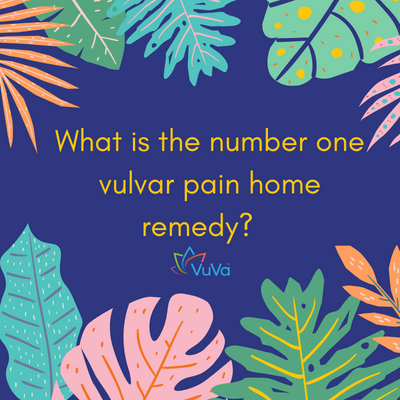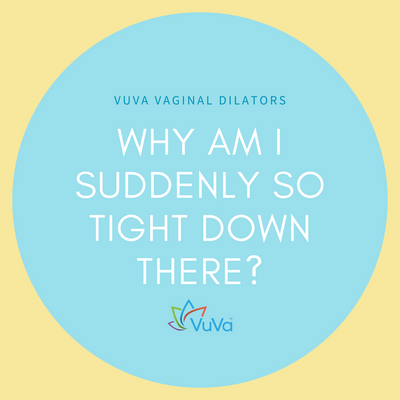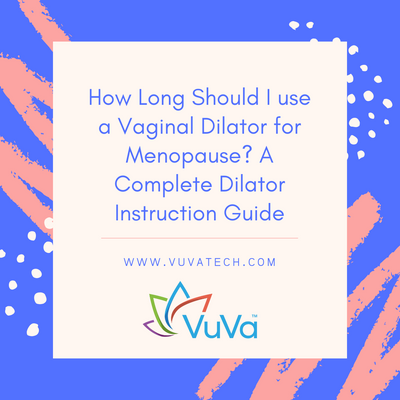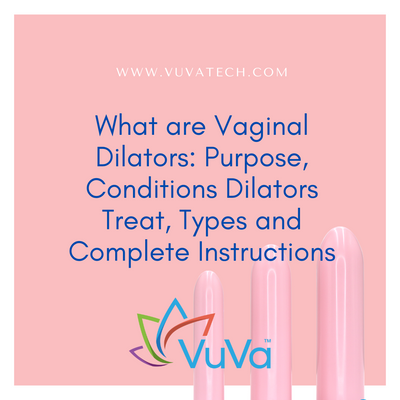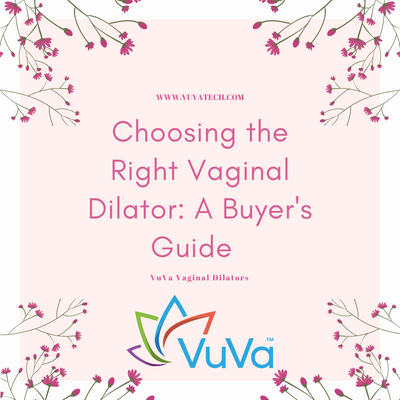
| Tara Langdale
Vaginal Stretching & Keeping in Shape with Dilators
Staying fit
Vaginal dilators or vaginal trainers are smooth, tube-shaped devices that help with vaginal stretching. While they may resemble a sex toy, vaginal dilators are medical devices that have helped thousands of women improve vaginal health and lead healthy sex lives.
When you're living with vaginal tightness, the pain makes it challenging to engage in sexual intercourse, use tampons, and even undergo a gynecological exam. Painful vaginal tissue also makes women feel ashamed and fearful. In this article, we'll help women with tight vaginal tissue keep in shape with dilators.
Vaginal Dilator Therapy
Vaginal dilator therapy is a conventional physiotherapy treatment to stretch out the vagina. According to the Memorial Sloan Kettering Cancer Center, vaginal dilator therapy is a safe and effective way to keep the vagina from becoming too narrow and improve vaginal elasticity. (1)
As with any other muscle in a woman's body, pelvic floor muscles can become tight and constricted. The tightness can lead to pain and spasms in the vagina and vulva. Some women describe the pain as searing and constant, while others experience sharp pain when triggered (can you use CBD? Check this out).
Common triggers can be as little as pressure from a finger, sitting for long periods, wearing tight clothes, or during intercourse. Vaginal dilator therapy applies pressure to the inflamed vaginal wall to help them relax to decrease tightness and spasms. (2)
Choosing the Right Vaginal Dilator
Vaginal dilators come in many shapes and sizes. Selecting the right vaginal dilator to help strengthen your pelvic floor and ease sexual pain is essential. Since vaginal dilator therapy is the most commonly prescribed treatment for safe vaginal stretching, you have a few different choices.
Magnetic Vaginal Dilators
Vuva medical grade magnetic vaginal dilators are made from medical grade polycarbonate plastic and come in graduated sizes. Each dilator comes with over 60 Neodymium magnets to help stretch the vagina. While non-magnet vaginal dilators can be useful, ones with magnets may work better for some women.
The reason is that the magnets help pull fresh, oxygenated blood into the vaginal walls while removing any acidity causing illness. New blood pumped through the vaginal muscle is healing and rejuvenating.
Non-Magnetic Vaginal Dilators
VuVa Smooth Vaginal Dilators have helped thousands of women around the world stretch the vagina with vaginal dilators. The non-magnetic dilators are made with polycarbonate plastic too, but without the magnets and designed by a pelvic pain patient who suffered from painful intercourse.
You can purchase non-magnetic vaginal dilators in sets of five or individually. The benefit of investing in a dilator set is that you can start with the smallest one, and as your pain threshold grows, you can move up to the next size.
Silicone Dilators
For the softest vaginal dilators you can find, try silicone dilators. Silicon is soft and malleable, making the fit easier on the pelvic floor. The Grade 6 medical silicone comes in FDA-approved ingredients and fun colors.
The VuVatech silicone dilators warm to the body's temperature and have a silky, yet firm texture that makes stretching your vagina more comfortable. While the fit is less painful initially, medical-grade plastic dilators with magnets break up the scar tissue faster.
How to use vaginal dilators
Once you've chosen the right vaginal dilator, you're ready to begin pelvic floor therapy. VuVatech dilators usually come with lubricant. You'll want to use a water-based lubricant during treatment. Your natural lubrication may not be enough for the procedure to be effective.
Find a nice, quiet place you can be alone without interruption. Vaginal dilator therapy can be emotional, and you'll want somewhere you feel safe.
In a comfortable prone position with your legs bent, gently insert the dilator. You must start with the smallest size for a vaginal stretch without too much pain. Dilator therapy is best when done 1-2 times per day for 20-30 minutes. As your vagina stretches, you'll be able to withstand more extended amounts of time.
When is Dilator Therapy Used
The reasons for keeping in shape with dilators vary from woman to woman. Below are some common conditions that dilator therapy can help ease.
Dyspareunia
Dyspareunia is vulva pain before, during, or after sexual intercourse. Women of all ages can experience pain during intimacy, and the reasons vary from vaginal structural problems to psychological problems.
Vaginal Changes
Having a child is one of the most life-changing moments in a woman's life. Yet, vaginal birth can cause vagina changes. If you have perineal trauma during the delivery, it may cause scar tissue. The perineal is the space that connects the vaginal opening with the anus.
As the baby's head moves through the birth canal, the opening of the vagina widens. But if the labor is quick or perineal stretching is too rough, it can tear, requiring stitches. It then can then cause perineal scarring. Vaginal dilators can help perform perineal massage after birth (after stitches removal and healing) or during the birth preparation process to improve elasticity. Perineal massaging helps reduce the risk of permanent scarring. (3)
Vaginismus
Vaginismus is painful, uncontrollable spasms in the vagina. The triggers for the pain could be simply inserting a tampon, undergoing a pelvic exam, or during sexual penetration. Vaginismus may be primary or secondary. Primary is when you've never been able to have penetrative sex and secondary when you could have sexual penetration in the past but can no longer.
Pelvic radiation therapy
If you’ve had pelvic radiation therapy as a cancer treatment, your vagina may have narrowed and have reduced elasticity. The vaginal walls may have become thin and dry, making sexual intercourse painful. Vaginal dilators can help stretch the vaginal walls and widen the vagina. (4)
Menopause
Menopause is a moment in a woman's life when she makes the transition from being fertile to infertile. The most common age is the late 40s and early 50s. As the change happens, hormones levels of estrogen and progesterone begin to fluctuate dramatically, causing painful symptoms. Two of these symptoms are vaginal atrophy (extreme dryness) and vaginal narrowing. Both conditions result in painful intercourse. (5)
Vulvodynia
Vulvodynia is pain and spasms in the vaginal opening or vulva that has no known cause. The National Vulvodynia Society says that women who suffer from this condition experience painful symptoms, including vaginal inflammation, stinging, tearing, and aching. Pain can be ongoing or triggered. (6)
Vaginal dilators help stretch and keep your vagina in shape. While the process may seem unfamiliar at first, as you use dilators to ease vaginal pain, you’ll begin to experience the joy this brings in all areas of your life— From renewed intimacy to increased confidence. Begin your healing journey today!
- https://www.mskcc.org/cancer-care/patient-education/how-use-vaginal-dilator
- https://www.sciencedirect.com/science/article/abs/pii/S1083318819301858
- https://www.obgyn.net/pelvic-pain/painful-intercourse-after-delivery
- https://www.mskcc.org/cancer-care/patient-education/radiation-therapy-pelvis
- https://www.nia.nih.gov/health/what-menopause
- https://www.nva.org/what-is-vulvodynia/
Other VuVa Helpful Links:
7 Reasons for a Tight Vagina and How to Loosen
How to Relax Vaginal Muscles, Vaginismus & Sex
Vaginal Stretching - Keeping in Shape with Dilators
Do Dilators Really Work? Yes, and They can Improve Your Sex Life!
Shop for VuVa Vaginal Dilators


